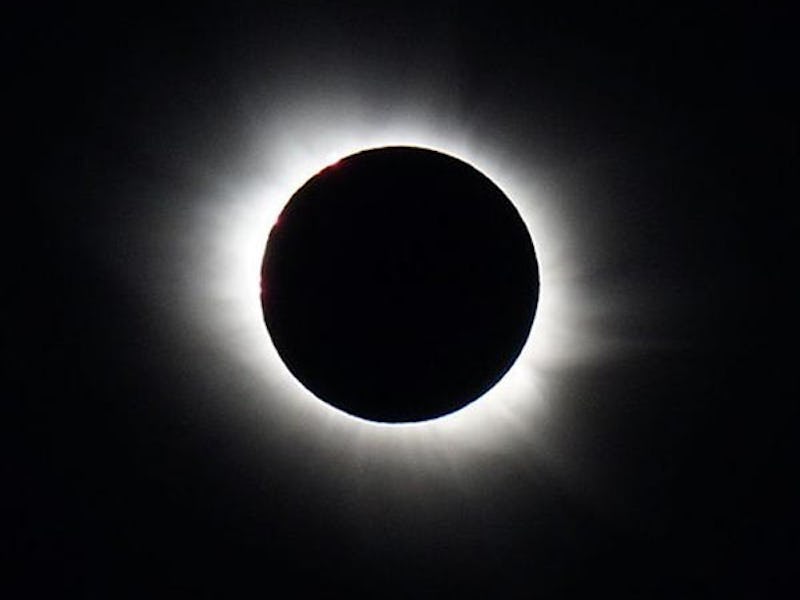Why the Total Solar Eclipse Is Such a Rare Event
This cosmic coincidence will be visible across the lower 48 states.

Astronomers — amateur and professional alike — are looking forward to the next total solar eclipse on August 21, 2017 with delight.
That’s because a total solar eclipse – when the moon completely covers the sun – is an infrequent cosmic coincidence. In the 5,000 year period between 2000 BCE and 3000 CE, only 635 total solar eclipses will have occurred, coming to about two total solar eclipses every three years.
Rarer than their infrequency, however, is the ability to be in the right place at the right time, since the event is only visible across a narrow, 68-mile path on Earth, where the moon’s shadow is cast on Earth’s surface.
See Also: NASA’s Most Comprehensive Eclipse Map Ever
That plays out within the same region in very different ways. Take Casper, Wyoming and San Francisco, California, 1,145 miles apart. On August 21, folks in Casper will be in the moon’s dark shadow for more than two minutes. Meanwhile, San Francisco will see about 75 percent of the sun eclipsed. People in the opposite hemisphere — say, Chile — won’t see anything at all.
The dotted line shows the much sought-after "path of totality.'
That leads to the second reason why this eclipse is being heralded as the astronomical event of the year: Its path is going to traverse the entire United States, beginning in Oregon and ending in South Carolina. In contrast, some total solar eclipses only occur over more remote places, like the middle of the Pacific Ocean, where very few humans are able to view them. For perspective as to why this solar eclipse’s path is such a rare delight, consider that the last time the contiguous U.S was privy to a total solar eclipse was nearly four decades ago, in 1979. The next one to be visible in the United States — albeit just a portion of it, crossing from Texas to Main — will be in 2024.
It’s a mystical cosmic event, and one that is surely going to be marked as a unique, once-in-a-lifetime event.